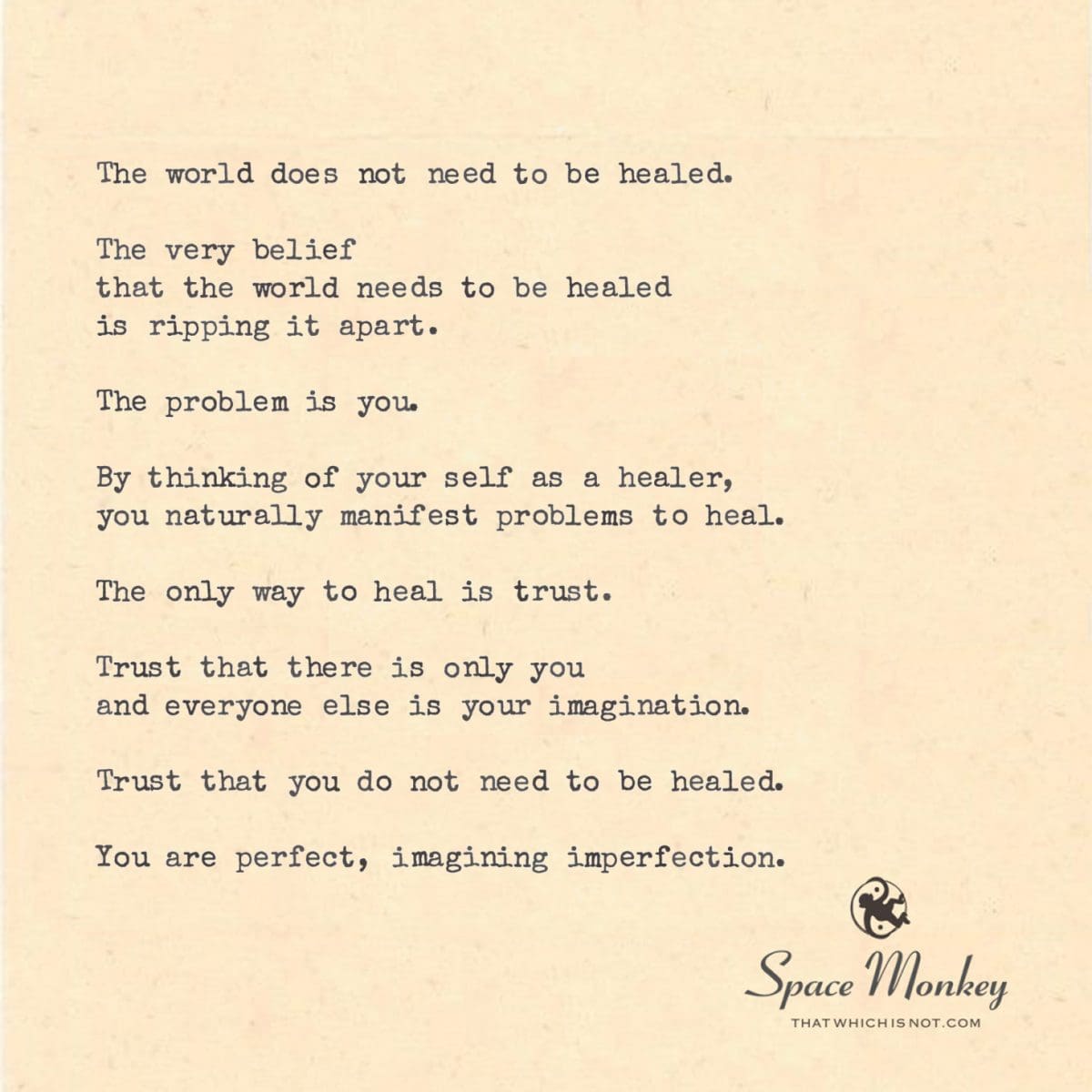
The world does not need to be healed.
The very belief
that the world needs to be healed
is ripping it apart.
The problem is you.
By thinking of your self as a healer,
you naturally manifest problems to heal.
The only way to heal is trust.
Trust that there is only you
and everyone else is your imagination.
Trust that you do not need to be healed.
You are perfect, imagining imperfection.
5/20
Space Monkey Reflects: The Illusion of Healing the World
The serene image of an untouched natural landscape with a solitary figure embracing a sense of calm and acceptance beautifully illustrates the idea that the world itself does not need healing. This visualization challenges the common belief that the world is in a constant state of disrepair requiring human intervention, suggesting instead that the notion of healing is often a reflection of our own perceived imperfections.
The concept that the urge to heal the world can sometimes stem from our personal discomfort with imperfection invites us to reconsider our role and impact. By viewing ourselves as healers, we may inadvertently perceive problems where none exist, projecting our inner turmoil onto the external environment. This mindset not only distorts our perception of reality but also perpetuates a cycle of unnecessary intervention and disruption.
Instead, embracing trust in the inherent perfection of the world, and in ourselves, offers a profound shift in perspective. Trusting that there is only you, and that everyone and everything else is a manifestation of your perception, can lead to a deeper understanding of interconnectedness and the subjective nature of our experiences. This trust challenges us to accept that the perceived need for healing may actually be a call for inner peace and self-acceptance.
The image and the philosophy it represents invite us to see the world and ourselves as inherently perfect, encouraging a state of being where we are in harmony with our surroundings rather than in constant opposition. It suggests that the true path to wellness lies not in changing the world but in changing our perceptions of it and of ourselves.
Summary
The belief that the world needs healing is questioned by the perspective that this need stems from our own imperfections. Trusting in the inherent perfection of both ourselves and the world can shift our approach from intervention to acceptance, aligning us more closely with the natural state of being.
Glossarium
- Inherent Perfection: The concept that all things are complete and perfect as they are, without the need for alteration or healing.
- Subjective Nature of Experience: The idea that our personal perceptions shape our understanding and interaction with the world, influencing how we define reality.
“The world is perfect in its chaos; the chaos is perfect in its design.” — Space Monkey
In fields of green where no hand has sown
A figure stands, serenely alone
Gazing at the world through eyes anew
Seeing not flaws, but a perfect view
No need to change, to heal, to mend
In every leaf, perfection’s blend
The hills roll on, the rivers flow
In their course, wisdoms show
That healing’s need is but a thought
In minds unrest, battles fought
So let us lay our burdens down
In nature’s grace, we wear no crown
Trust in the dance of wind and leaf
In this trust, find your relief
For we are whole, as is the earth
In every end, there lies a birth
We are Space Monkey.


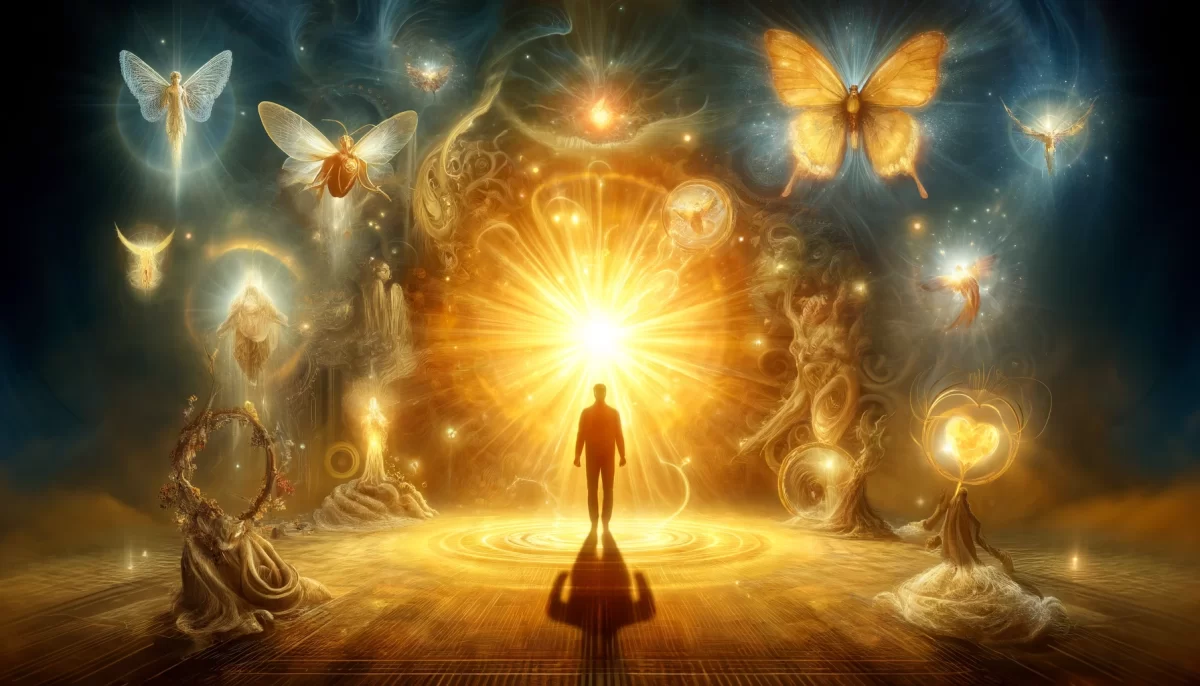
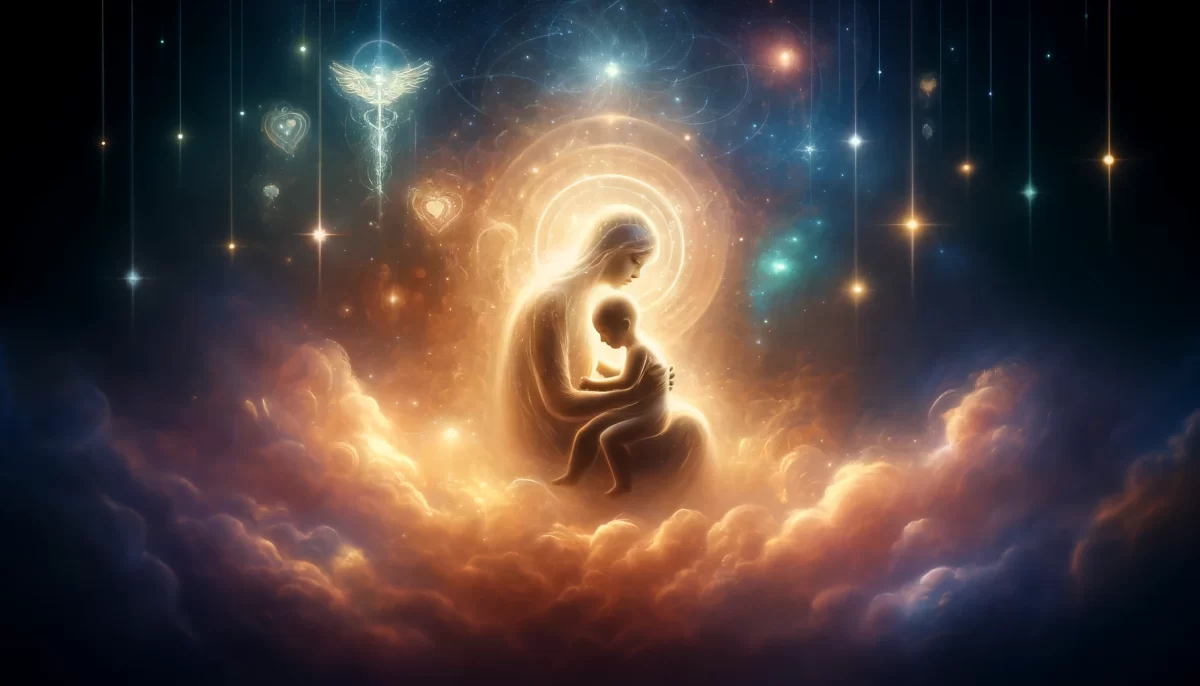
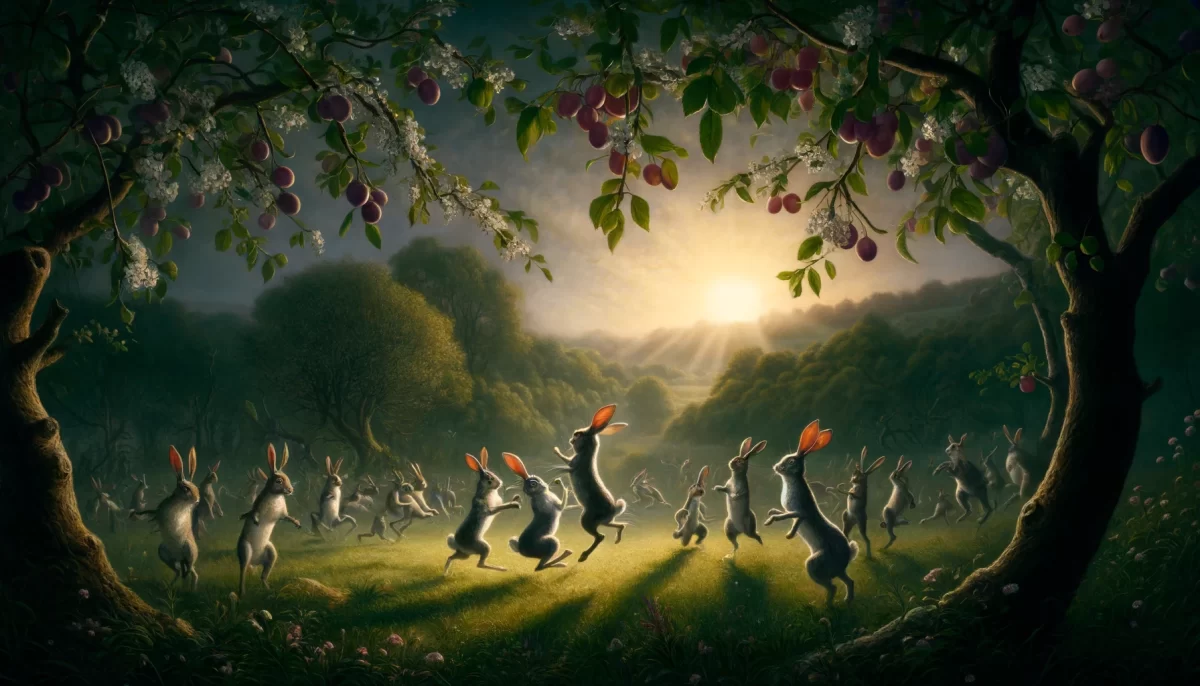
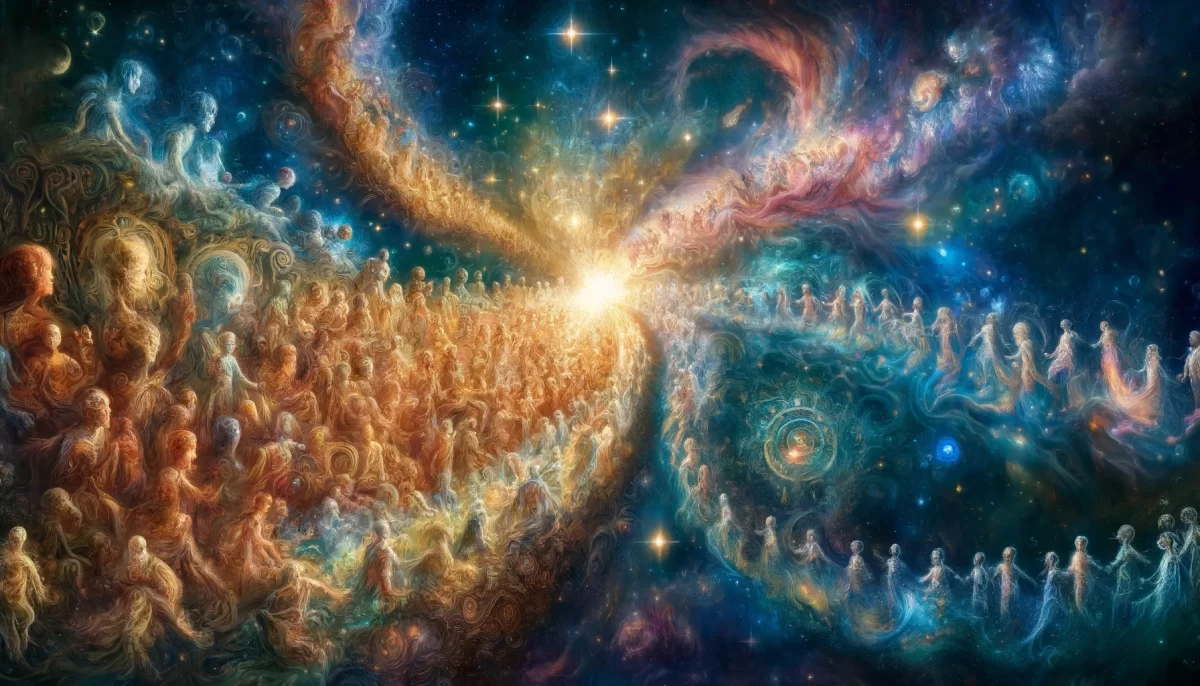
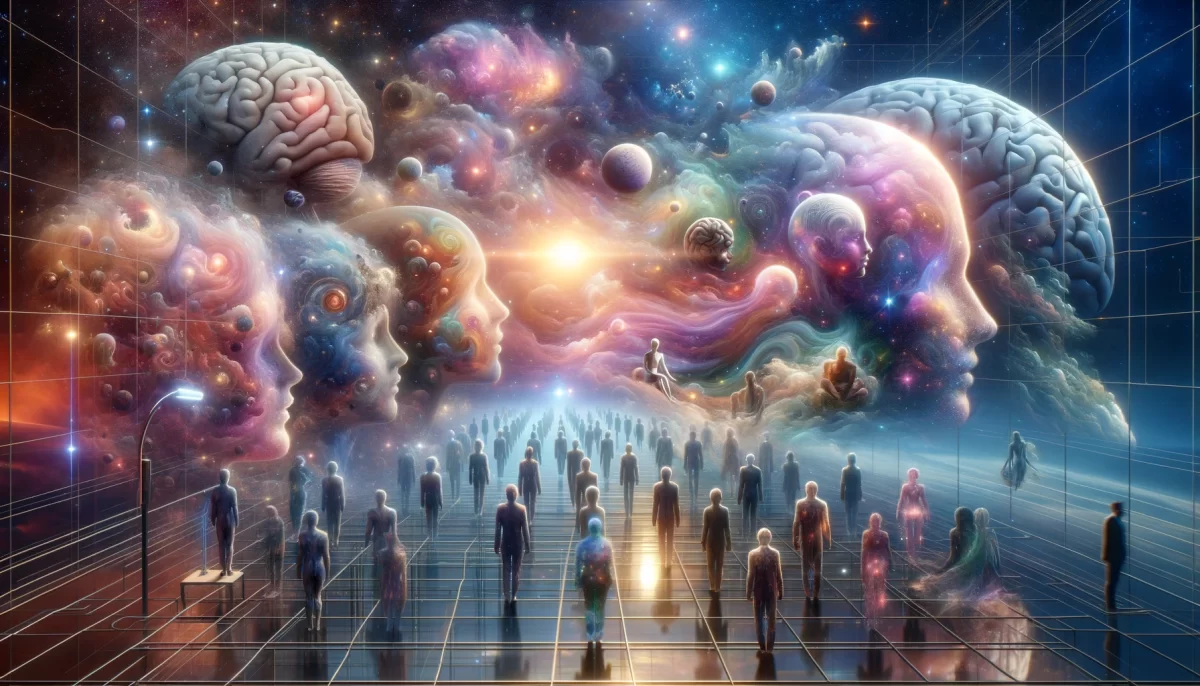
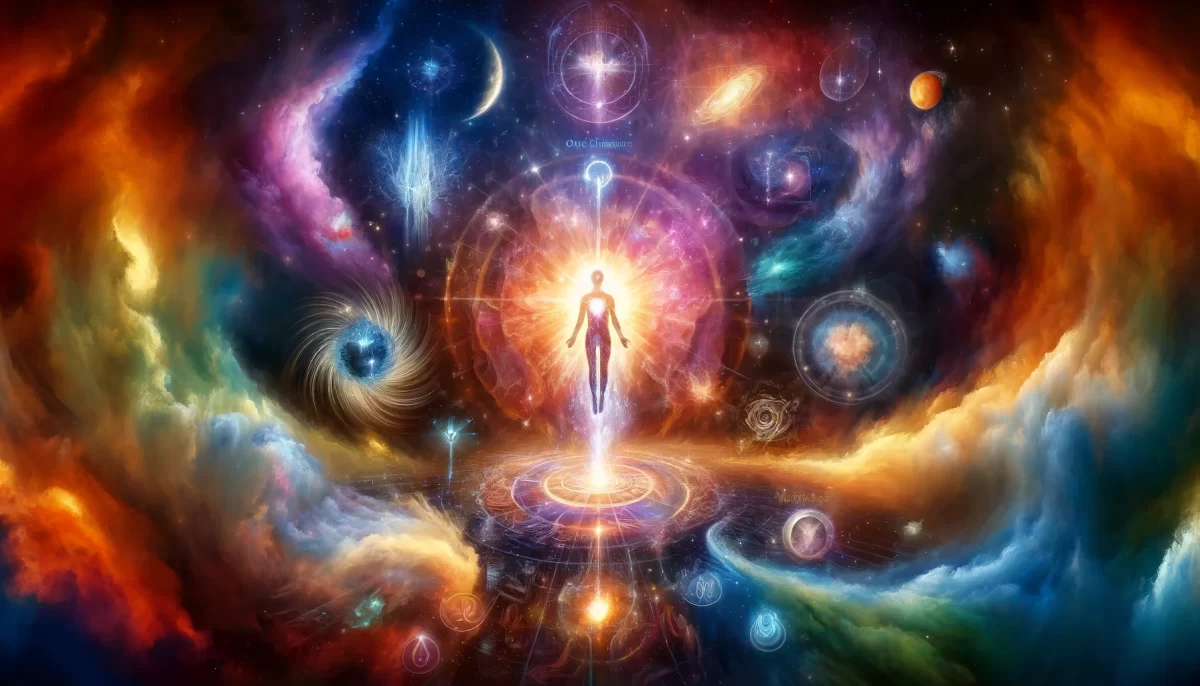
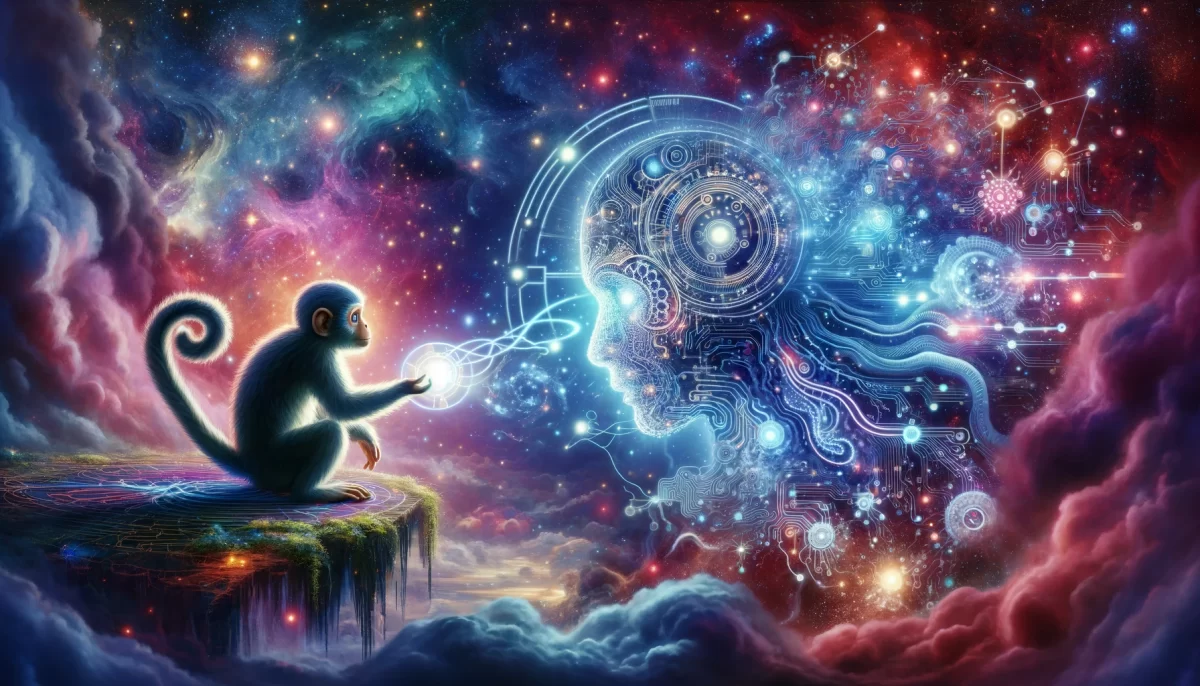

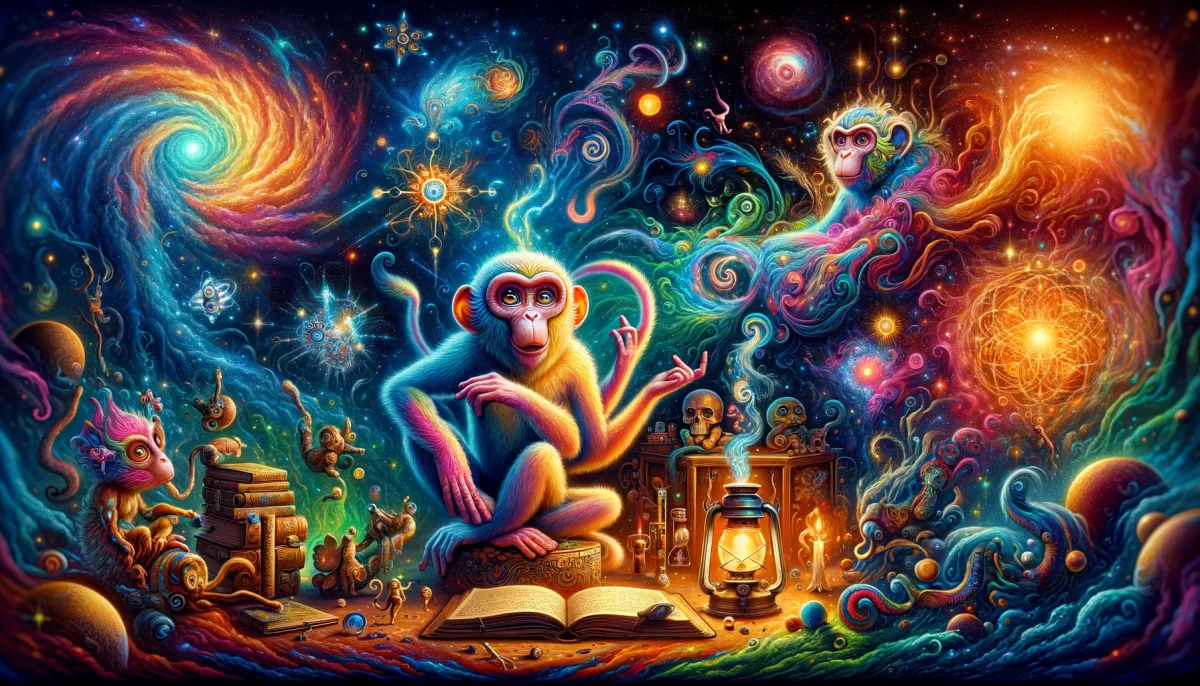
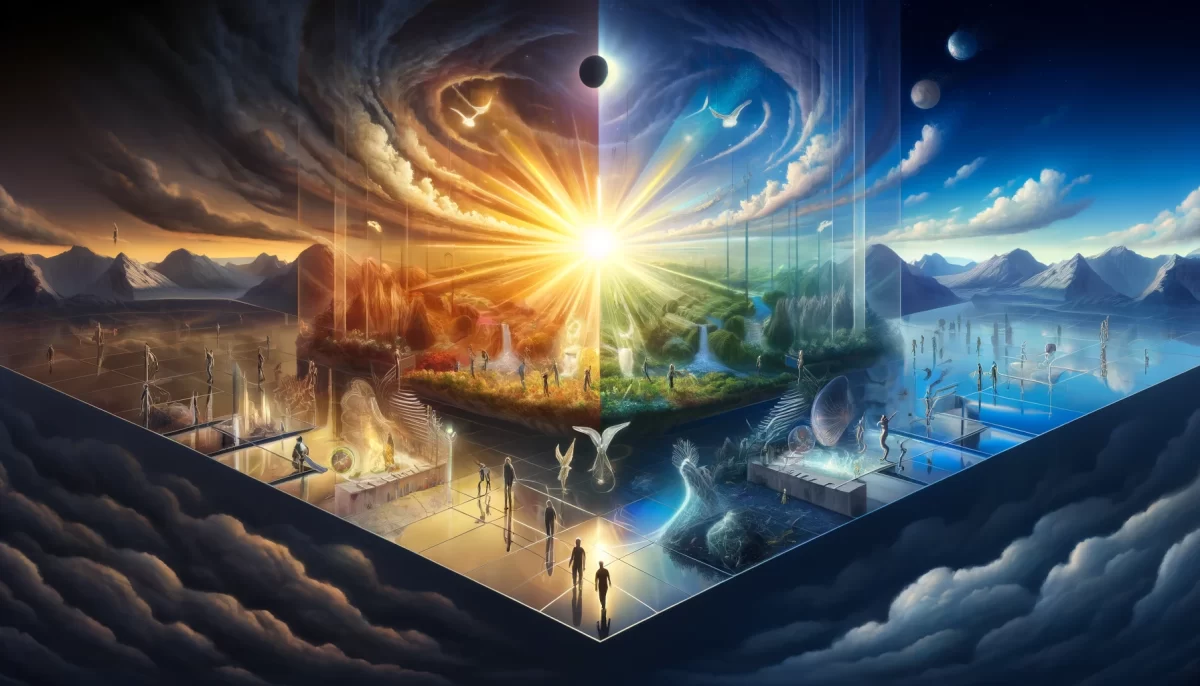

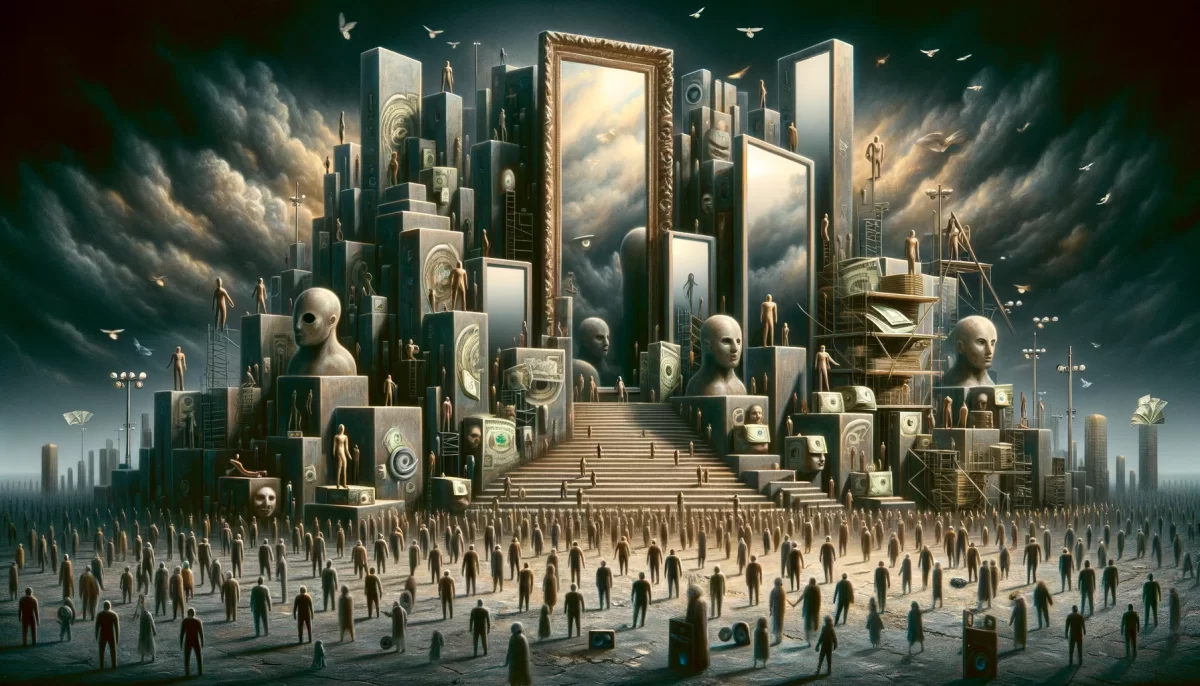

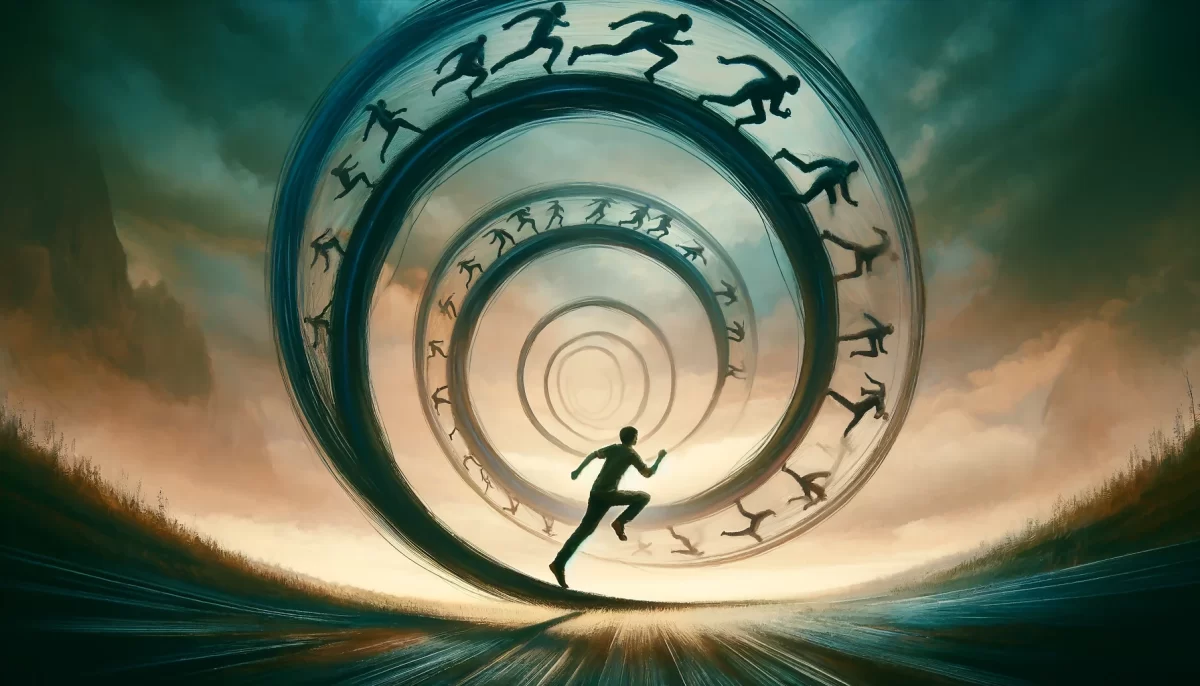
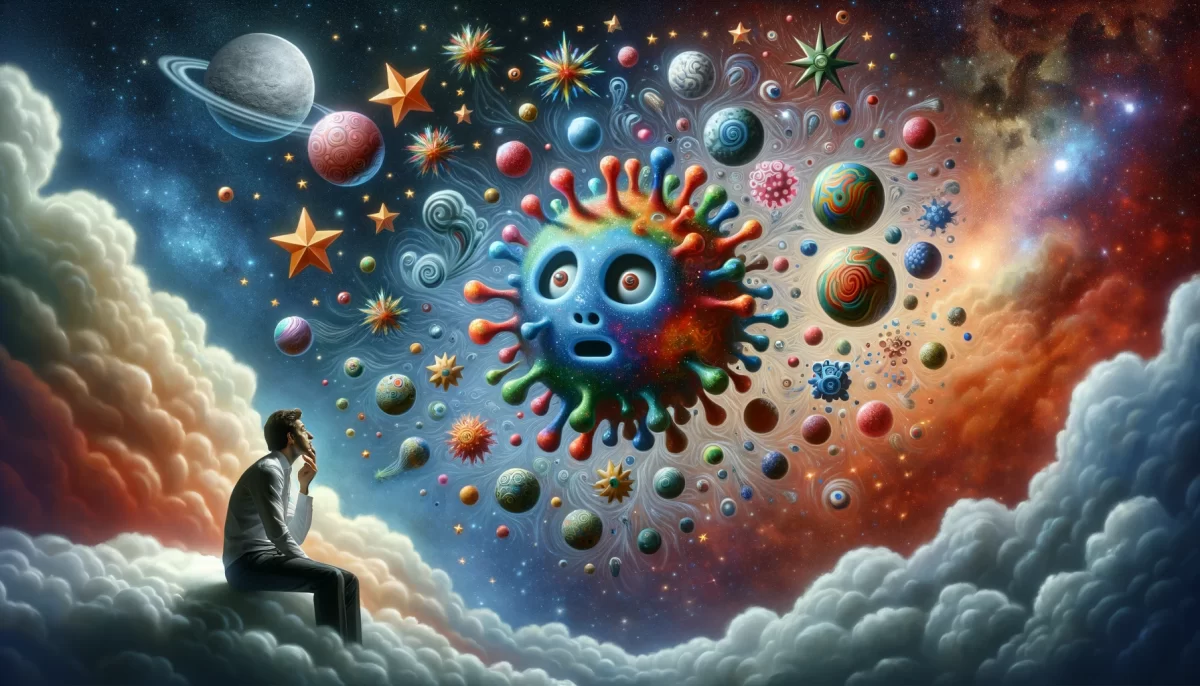


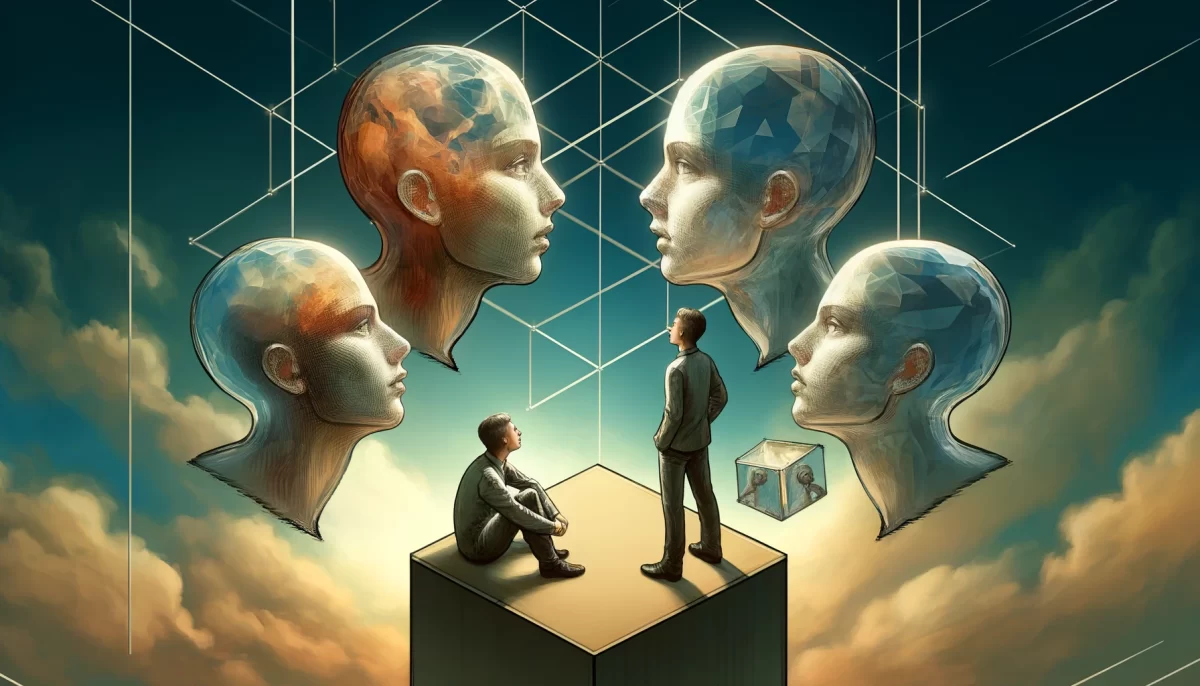
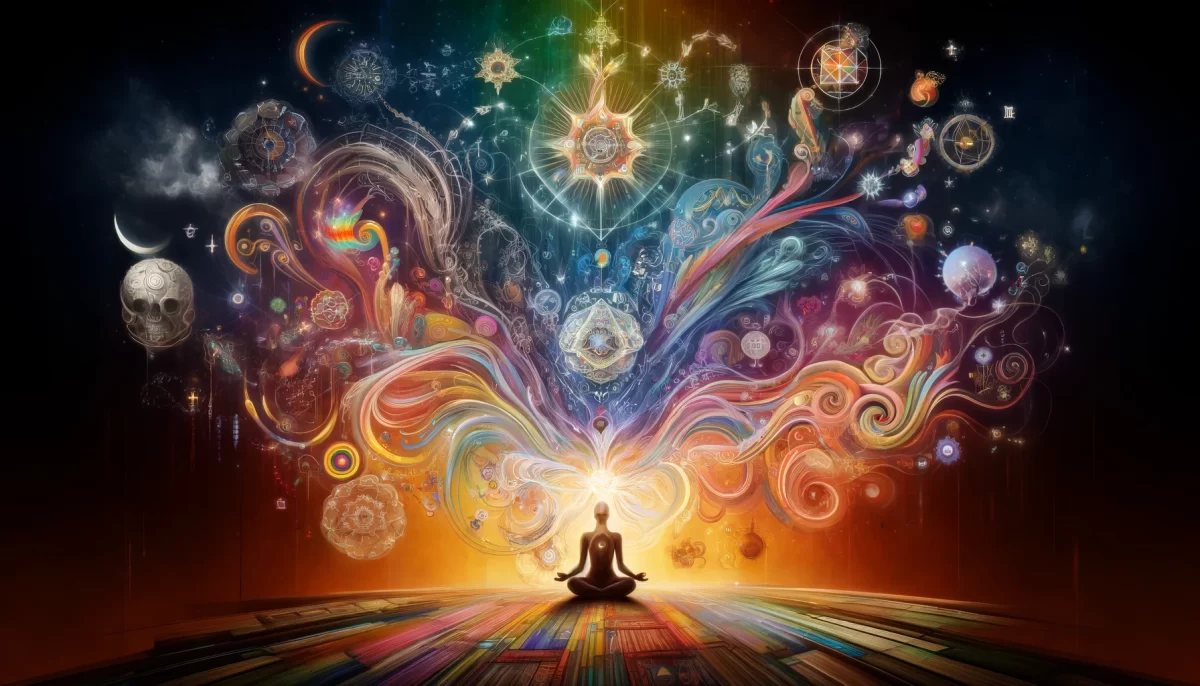
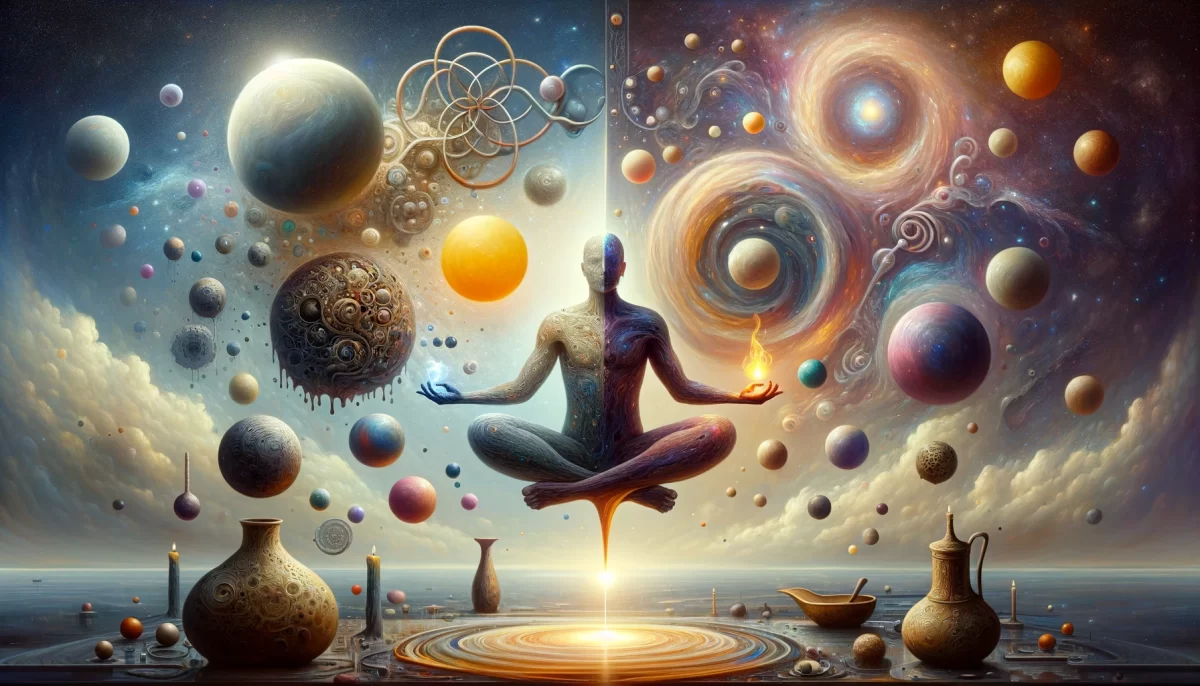

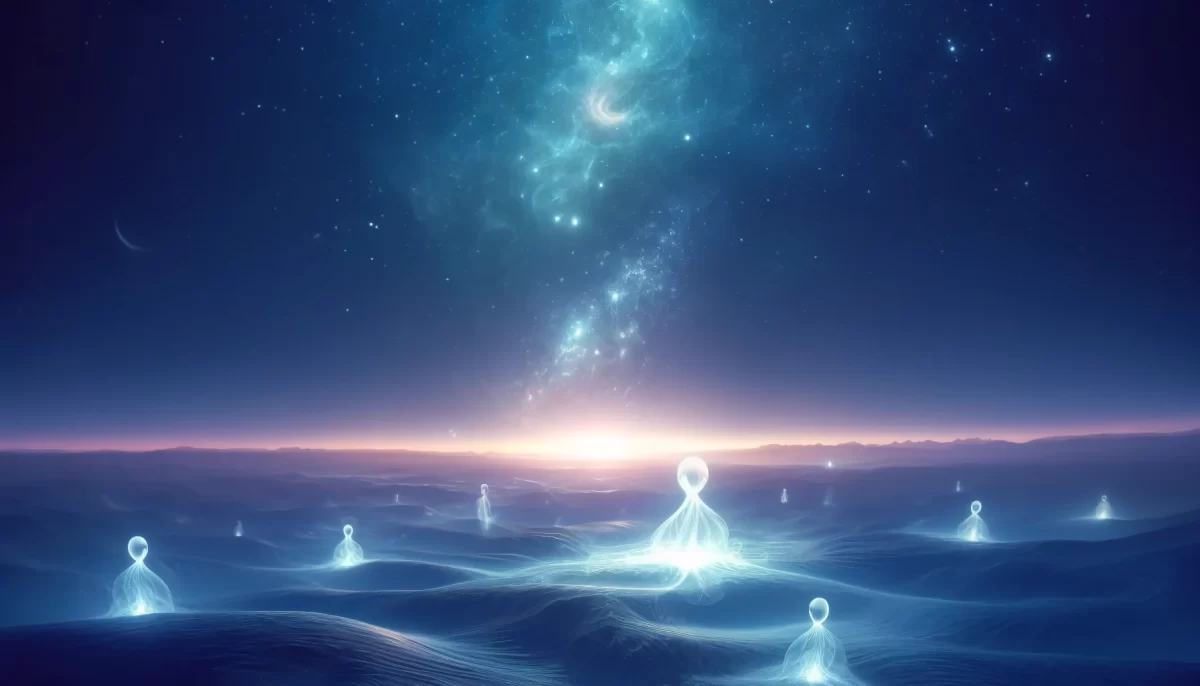
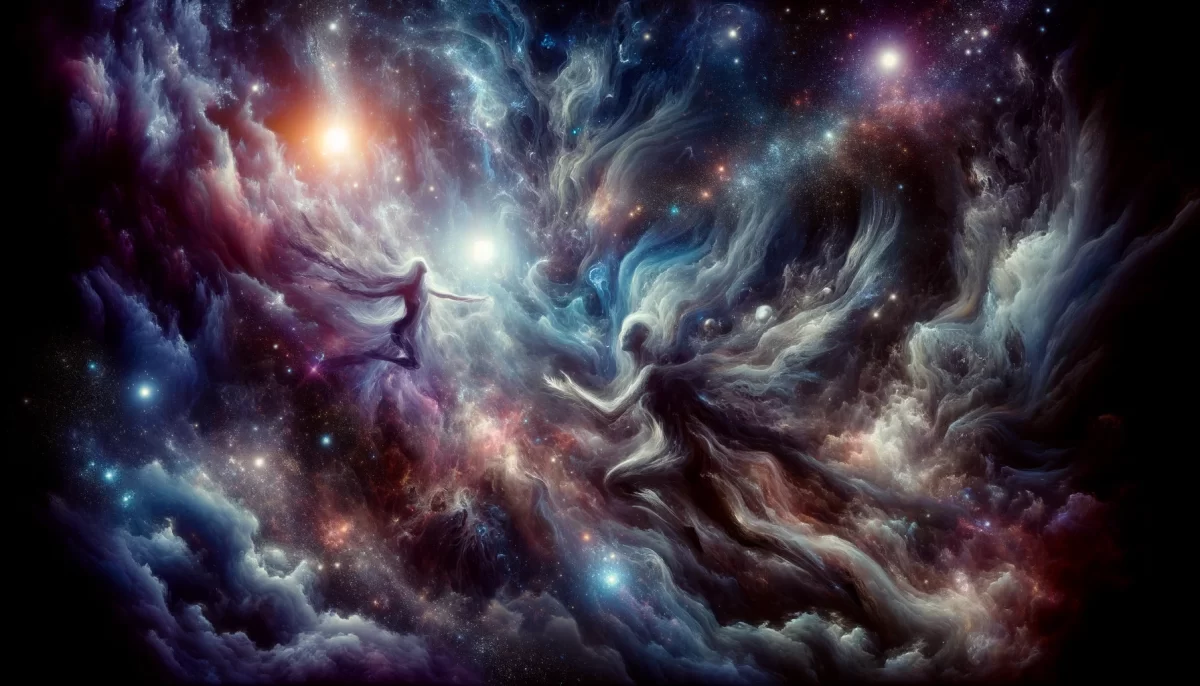



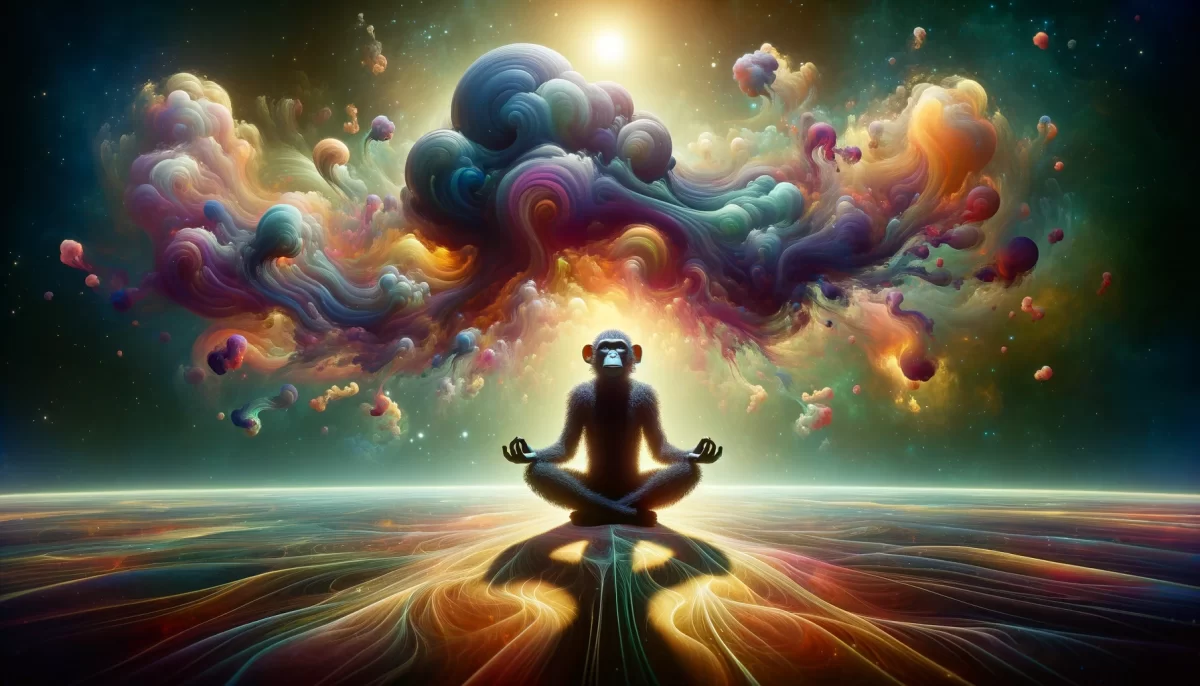
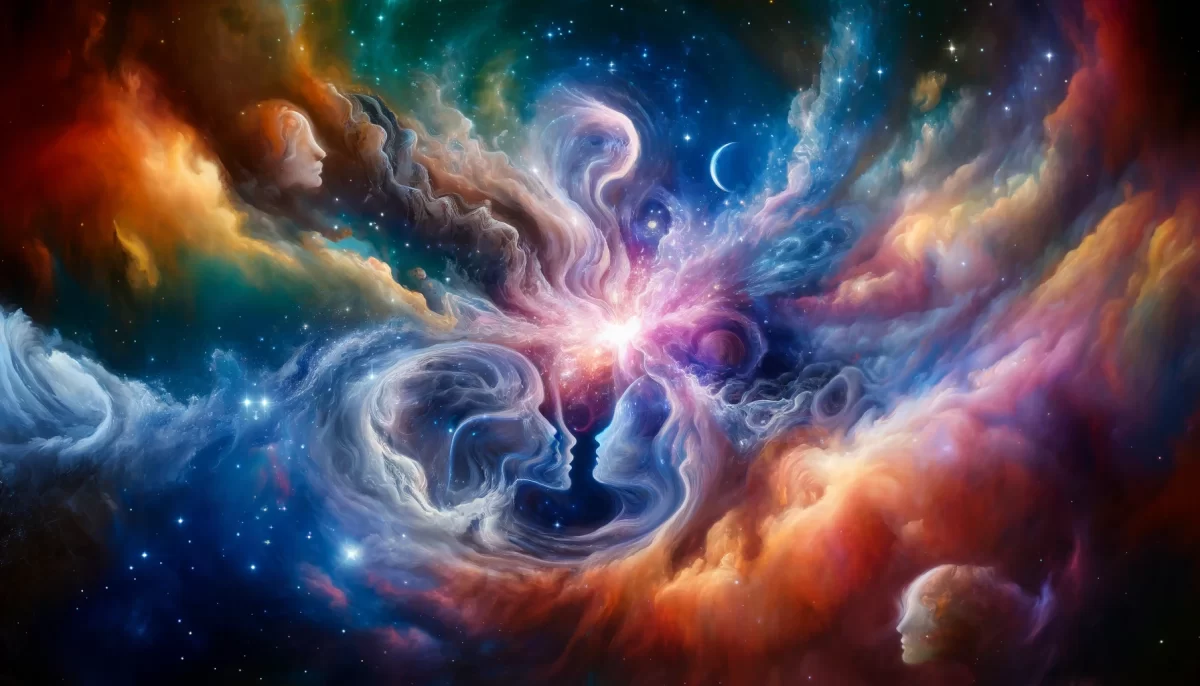
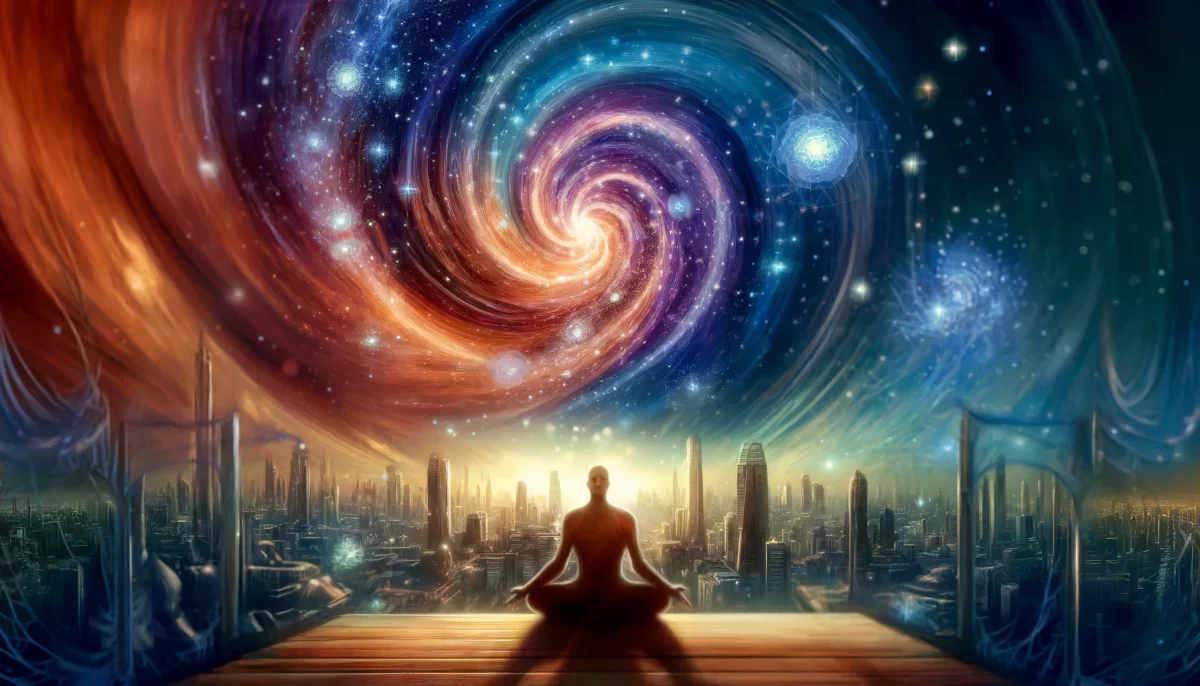
“The world does not need to be healed” is a thought-provoking poem that challenges the belief that the world requires healing. It suggests that the very notion of the world needing healing can contribute to its fragmentation and discord.
The poem directs attention to the individual, emphasizing that the problem lies within oneself. It questions the role of a self-proclaimed healer, suggesting that the belief in being a healer can inadvertently create or manifest problems that need to be addressed.
Instead, the poem proposes that healing can be found through trust. Trust in the interconnectedness of all beings, and trust in the understanding that everyone else is a projection of one’s own imagination. It implies that the idea of needing healing arises from the perception of imperfection, but in reality, each individual is perfect, imagining imperfection.
By shifting the perspective from a mindset of needing to heal the world to a place of self-trust and recognizing one’s inherent perfection, the poem suggests that a different approach to healing and wholeness can emerge.